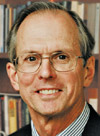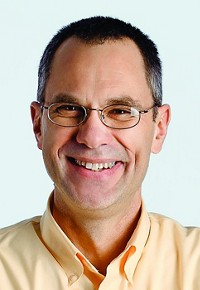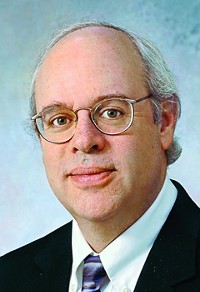Advertisement
Grab your lab coat. Let's get started
Welcome!
Welcome!
Create an account below to get 6 C&EN articles per month, receive newsletters and more - all free.
It seems this is your first time logging in online. Please enter the following information to continue.
As an ACS member you automatically get access to this site. All we need is few more details to create your reading experience.
Not you? Sign in with a different account.
Not you? Sign in with a different account.
ERROR 1
ERROR 1
ERROR 2
ERROR 2
ERROR 2
ERROR 2
ERROR 2
Password and Confirm password must match.
If you have an ACS member number, please enter it here so we can link this account to your membership. (optional)
ERROR 2
ACS values your privacy. By submitting your information, you are gaining access to C&EN and subscribing to our weekly newsletter. We use the information you provide to make your reading experience better, and we will never sell your data to third party members.
People
ACS Award in Colloid & Surface Chemistry
January 8, 2007
| A version of this story appeared in
Volume 85, Issue 2
Sponsored by Procter & Gamble
William B. Russel, Arthur Marks '19 Professor and dean of the graduate school at Princeton University, was introduced to colloidal dispersions and rheology late in his graduate work in chemical engineering. But the encounter sparked a curiosity that has helped establish colloid science as a vital branch of modern engineering.
The seeds of Russel's most cited work were planted when a Princeton graduate working at Wilmington, Del.-based specialty chemicals company Hercules sent him photos of a strange phenomenon: aqueous dispersions that had been transformed by the presence of a common water-soluble polymer.
Collaborating with Carol K. Hall, then a colleague at Princeton, and then-graduate student Alice P. Gast, Russel found that, as expected in molecular systems, the phase transition was gas-to-liquid when the particles were smaller than three times the size of the polymer. But for larger particles, the disordered phase transformed directly into an ordered solid, an unusual twist that became the basis of a series of papers.
"This elegant and insightful work is now a classic," says Pablo G. Debenedetti, Princeton Class of 1950 Professor in engineering and applied science. "By successfully explaining the physical basis for polymer-inducing phase separations in colloidal suspensions, it has become the basis for rational engineering design of polymer-stabilized colloidal suspensions, with applications ranging from pollution prevention to the formation of paints and cosmetics."
Russel went on to make other significant theoretical and experimental contributions to the field of colloid science. His studies of hard-sphere suspensions, depletion phenomena, rheology and consolidation of colloidal gels, and latex film formation, all solidly grounded in theory, have spurred the entire discipline to rethink descriptions of colloidal phenomena, says Charles F. Zukoski, vice chancellor for research and a professor of chemical and biomolecular engineering at the University of Illinois.
"His work in this arena predates the craze in nanomaterials but laid the crucial foundation necessary for much current work in nanomaterial self-assembly research and development," Zukoski notes.
Over the past two decades, Russel has become increasingly involved with the administrative side of graduate education. The first step was his appointment as chair of the department of chemical engineering in 1987, a position he held until 1996, when he became the director of the Princeton Materials Institute. In 2002, his role expanded even further when he was named dean of Princeton's graduate school.
That shift into administration has still left space for research. Currently, Russel is researching colloidal film formation and patterning of thin polymer films.
Russel, 61, graduated from Rice University in 1969 with a B.A. and a master's of chemical engineering. He received a Ph.D. from Stanford University in 1973 and joined Princeton's department of chemical engineering a year later. He has served on the editorial board of a number of colloid science and engineering journals and has been honored throughout his career, including elections to the American Academy of Arts & Sciences and the National Academy of Engineering.
The award address will be presented before the Division of Colloid & Surface Chemistry.





Join the conversation
Contact the reporter
Submit a Letter to the Editor for publication
Engage with us on Twitter